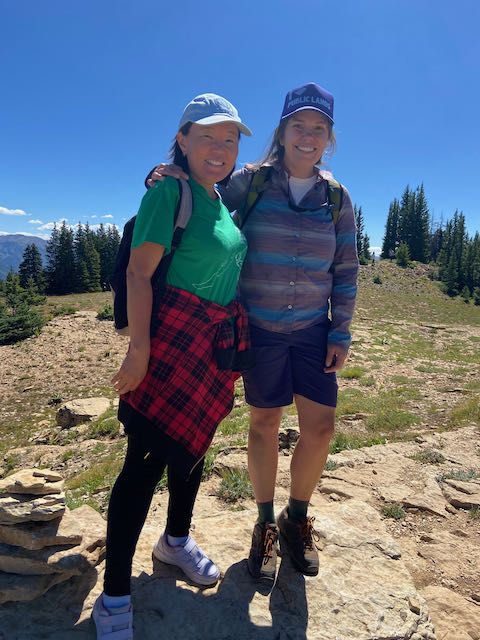The Summer it Was Difficult to be Brave
 | |
|
Too often throughout the day, I view the fire incident information website looking for updated maps. Upon finding the county air quality monitoring real-time data for our town I watch it closely. The stream gage real-time data is also part of my regular routine although it does not change much. It is as if I have become addicted to the data updates. It is the raw data and source information that I’m most interested in; not the emotion filled news stories.
I struggle with words to describe my feelings. Is it frustration, disappointment, madness, anger, scared, helplessness, depression, worry, or all of this and something else? Regardless, it is heavy. Some days it is all-consuming and overwhelming. The underlying tension and strong feelings of uncertainty underlie and penetrate my community. We are all working hard to stay brave and live our ordinary everyday lives in spite of the unnerving conditions of our home landscape.
As a well-informed environmental educator I know that all these inevitable symptoms of climate change are expected after 150 years of over consumption and unprecedented quantities of greenhouse gasses released into the atmosphere in this short time period. None of this is surprising. Yet why am I so unsettled now that it is happening right here in my town? The visceral symptoms and community responses are inescapable. It is as if I thought it would never really happen to me, to my town; and now it is being realized first hand. How could I be so naïve?
Riding my bike across town to capture the photo above, my throat burned from the smoke blanketing our community, which makes me frustrated. The poor air quality has prolonged my healing from an aggressive sinus infection this past month, which makes me mad. I’ve given up on keeping my house closed up to keep the air clean. Without air conditioning, opening windows at night is the only way to keep one’s house cool. I wake up in the middle of the night breathing smoky air and quickly jump out of bed to close the windows, which is irritating. Yet I am becoming accustomed to the smoke and sometimes do not even notice it when breathing even when it is visually present; this worries me. Most of all I am sick of talking about all of this; I want a new story to tell.
Remaining brave in spite of depressing health conditions of the landscape and its inhabitants necessitates the deep need for active hope. We must notice and recognize the youth, adults, families, organizations, and institutions who continue to be consistent, tenacious, and unrelenting in standing firm in their works of compassion and mission of making the world a better place for all each and every day. In spite of wild fires, drought, smoky haze, dangerously low river levels, illness, and the rocky uncertain political landscape I pray daily for the continual courage to love, see beauty, make music, teach the youth, grow gardens, and stay brave.


Comments
Post a Comment